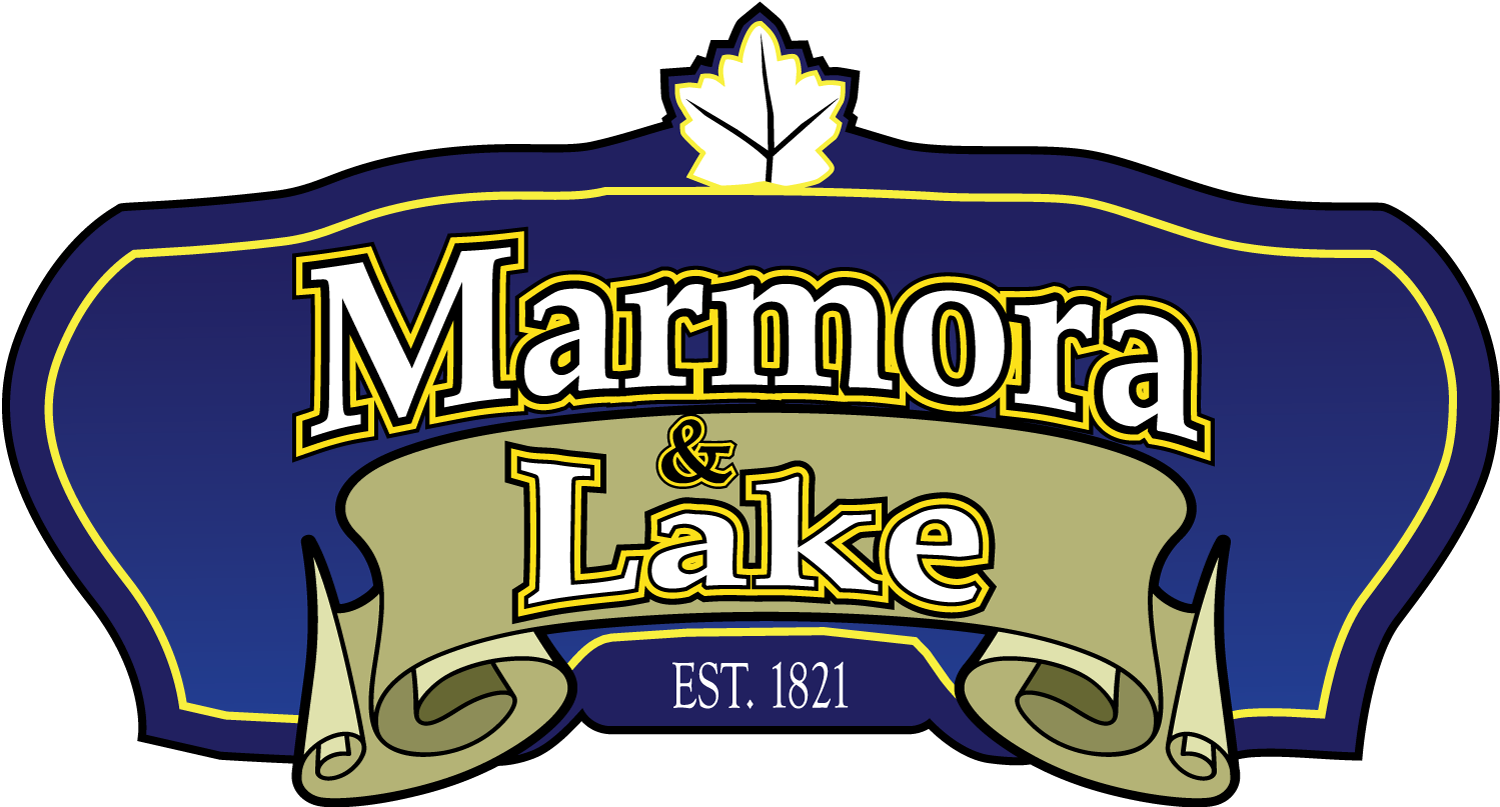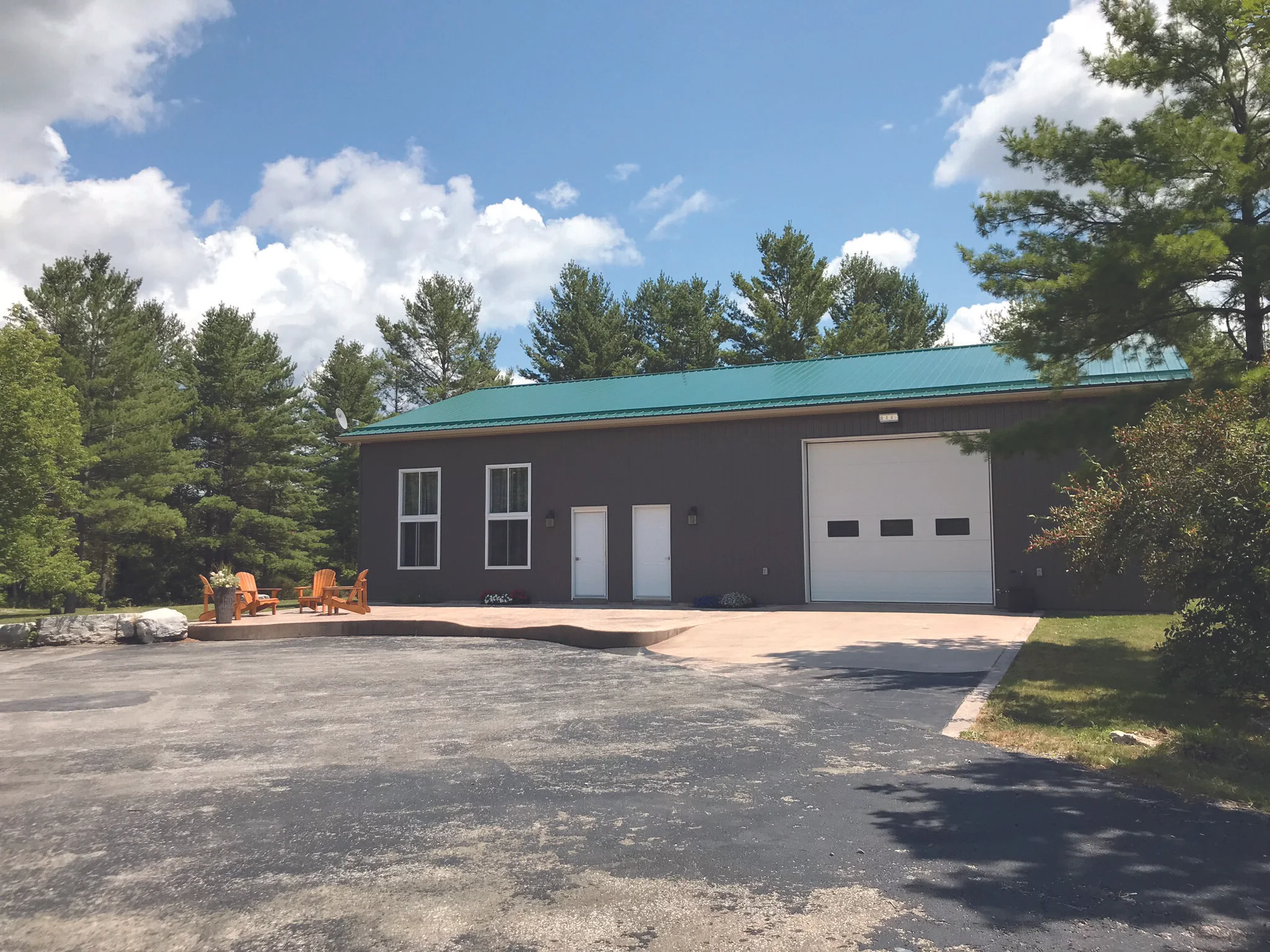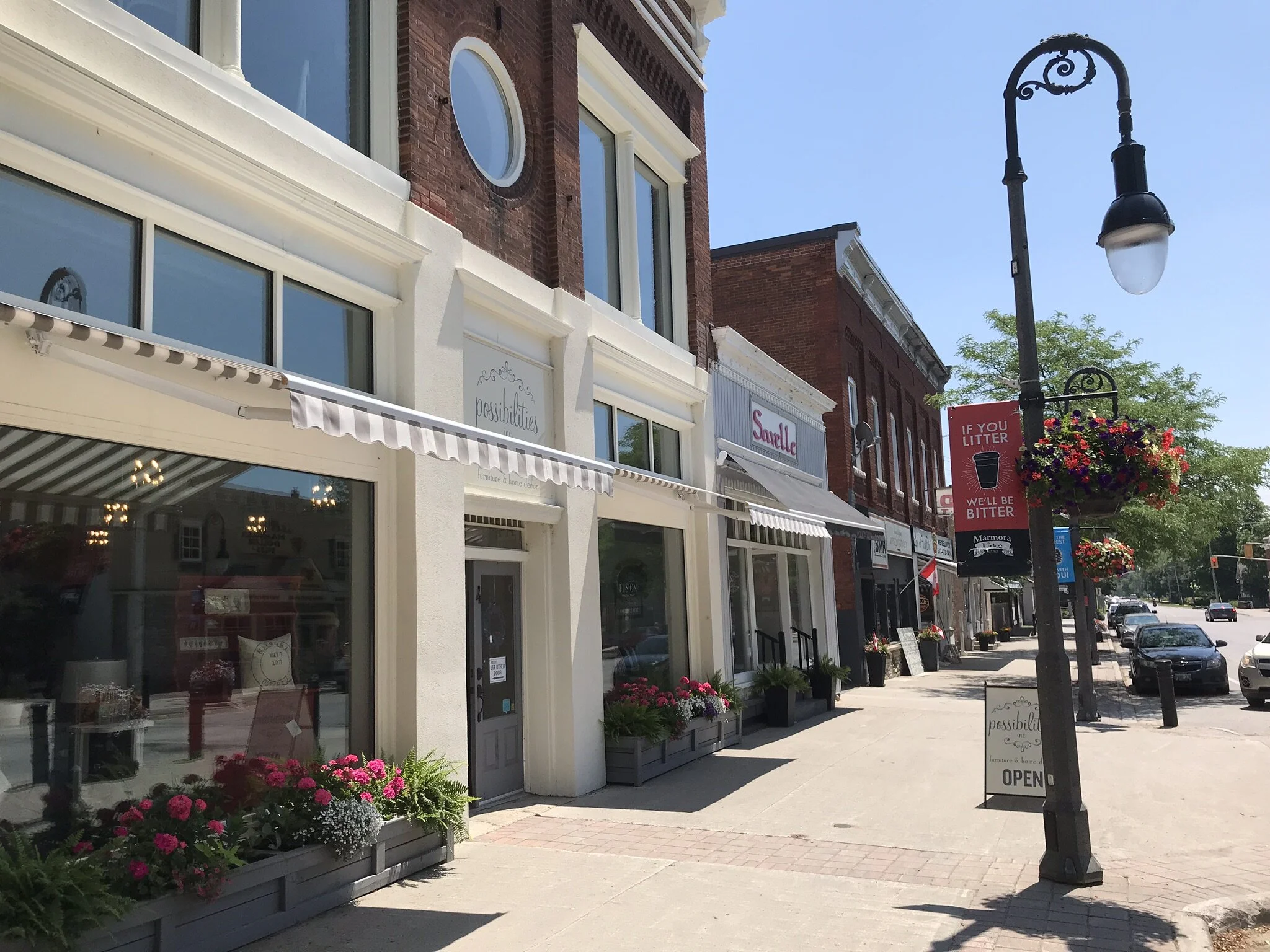Economic development
JOHN CONNOLLY
CAO/Deputy Clerk
cao@marmoraandlake.ca
Tourism Centre
9 Matthew Street, Marmora
613-472-1515
Check out the Economic Development/Tourism website:
https://visitmarmoraandlake.ca/
Marmora and Lake’s Economic Development’s primary goal is to assist new and existing businesses to thrive, and tourism opportunities. The office provides detailed and current information to businesses wanting to make informed decisions and links local businesses to valuable resources.
The Economic Development Department also supports community development through supporting local groups and organizations.
We incorporate our economic, community, and tourism goals as we believe that each are equally important in driving economic force for rural communities in Eastern Ontario.
Economic Development Advisory Committee
Our Economic Development Advisory Committee meets the last Wednesday of the month at 5:00 pm, in the William Shannon Room at the Marmora and Lake Public Library (37 Forsyth Street).
Meetings are open to the public to observe, however, the public may not participate in the discussion unless they are placed on the agenda.
Committee Members:
Councillor Eric Daoust
(Chair - edaoust@marmoraandlake.ca)Kimberley Alldread
Sean Hale
Oliver Heubeck
Anne MacNeill
Top Reasons for doing Business in Marmora and Lake
An affordable place to live and work, Marmora and Lake has very reasonable residential and commercial taxes.
Our beautiful parks, pristine waterways and small town charm make Marmora a lovely place to call home.
Our downtown core is located directly off of Provincial Highway 7, a well-travelled highway that links Ottawa and Toronto.
Full-time Economic Development staff can assist business owners and residents with applying for grants, locating valuable business resources, getting to know the community, and more!
Downtown Marmora is home to META employment services which can help residents locate work, acquire high school credits and prepare for post-secondary education.
Our community practices the “Buy Locally Owned” movement which promotes purchasing locally produced products.
The Municipality of Marmora and Lake works closely with Hastings County. Visit www.investinhastings.ca for information on investment strategies and more.
I Left the City
I Left The City is an initiative by Hastings County Economic Development to highlight the benefits of moving to a rural area to pursue your career.
This short video features 5 entrepreneurs who explain why they "left the city" to start a dream business and create a better life in Hastings County.
Integrated Community Sustainability
Sustainable development recognizes that the natural environment, economic and social development, and culture are the four fundamental pillars of community, are mutually dependent, and must be in balance. An ICSP is a long-term plan. It is based on the values, goals and projected future needs of the community, providing a common vision to work towards, and guiding citizens and the community as a whole towards a sustainable future. An ICSP looks at all aspects of the community from a four-pillar sustainability perspective, as summarized below:
Economic – business, industry, tourism, agriculture, employment, jobs
Social – health and social services, housing, education, youth, volunteers
Cultural – arts, heritage, events and festivals, sports and recreation
Environmental – air, water, land, flora and fauna, and the ecosystems we are part of
10 REASONS TO BUY LOCALLY OWNED
Buy local — support yourself: Several studies have shown that when you buy from an independent, locally owned business, rather than a nationally-owned business, significantly more of your money is used to make purchases from other local businesses, service providers and farms — continuing to strengthen the economic base of the community.
Support community groups: Non-profit groups receive an average 250% more support from smaller business owners than they do from large businesses.
Keep our community unique: Where we shop, where we eat and have fun — all of it makes our community home. Our one-of-a-kind businesses are an integral part of the distinctive character of this place. Our tourism businesses also benefit.
Reduce environmental impact: Locally owned businesses can make more local purchases, requiring less transportation, and generally set up shop in town or city centres, as opposed to developing on the fringe. This generally means contributing less to sprawl, congestion, habitat loss and pollution.
Create more good jobs: Small local businesses are the largest employer nationally and in our community provide the most jobs to residents.
Get better service: Local businesses often hire people with a better understanding of the products they are selling and take more time to get to know customers.
Invest in community: Local businesses are owned by people who live in this community, are less likely to leave, and are more invested in the community’s future.
Put your taxes to good use: Local businesses in town centres require comparatively little infrastructure investment and make more efficient use of public services as compared to nationally-owned stores entering the community.
Buy what you want, not what someone wants you to buy: A marketplace of tens of thousands of small businesses is the best way to ensure innovation and low prices over the long-term. A multitude of small businesses, each selecting products based not on a national sales plan but on their own interests and the needs of their local customers, guarantees a much broader range of product choices.
Encourage local prosperity: A growing body of economic research shows that in an increasingly homogenized world, entrepreneurs and skilled workers are more likely to invest and settle in communities that preserve their one-of-a-kind businesses and distinctive character.









